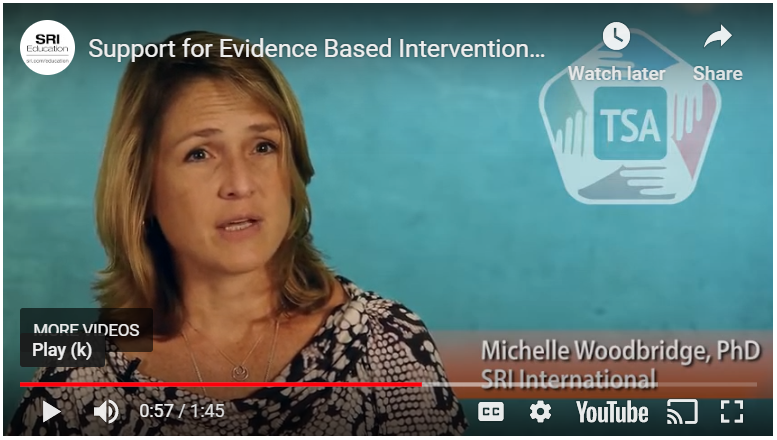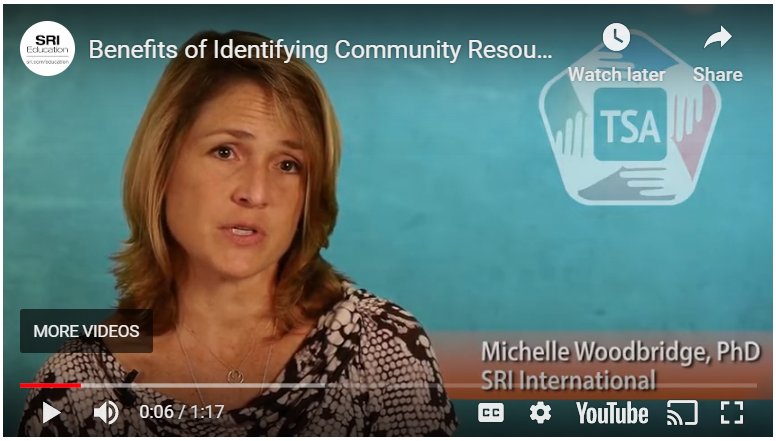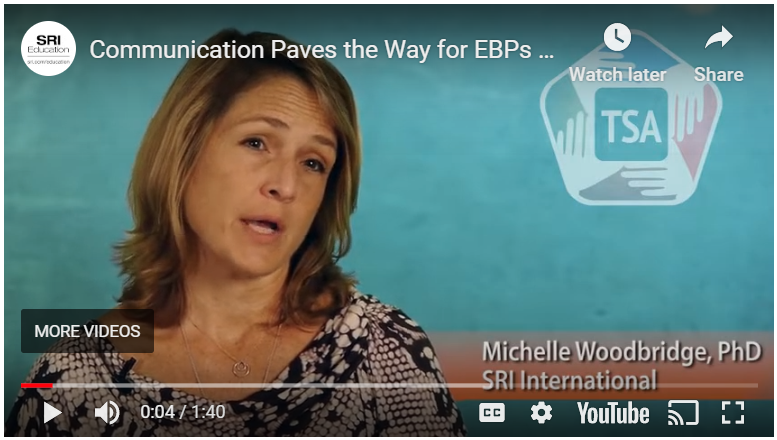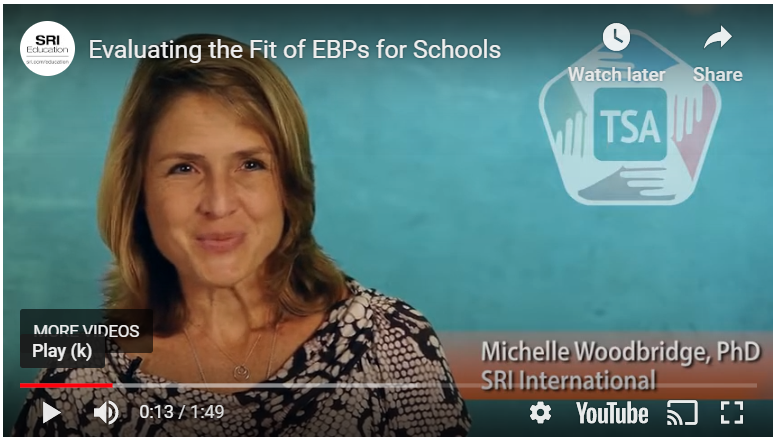A new suite of resources from the U.S. Department of Education includes considerations for school closures, provision of special education services, impacts on assessments/accountability, flexibility on meal provision, and more: https://www.ed.gov/coronavirus To see more of our COVID-19 Resources, click the “COVID-19” button below.
It can be challenging to make the case for a new intervention program, research initiative, or general behavior support. There is a lot of information to convey, but you usually don’t have much time to make your case to your administrators/team/community. Our senior researchers have done it for you! We’ve added a series of brief, 1-3 … Continue reading Need help with your elevator speech?
Dr. Michelle Woodbridge (who has been studying prevention and intervention programs related to school-based mental health for more than 25 years) discusses the benefits of collecting and sharing information about local community resources with participants in research studies. This video was produced by the 3C Institute. Helpful resources on cognitive behavior interventions can be found on … Continue reading Local trauma-informed care resources empower communities
Dr. Carl Sumi is an expert in student behavioral research and interventions. This is Dr. Sumi’s advice for parents who suspect their child may be experiencing bullying in school. This video was produced by the 3C Institute. Helpful resources on cognitive behavior interventions can be found on the Cognitive Behavioral Intervention for Trauma in Schools (CBITS) … Continue reading What can parents do to prevent and address school bullying?
Dr. Michelle Woodbridge (who has been studying prevention and intervention programs related to school-based mental health for more than 25 years) describes school-based clinicians’ perspectives on how using research-supported trauma-informed intervention programs in schools created meaningful, sustainable changes in practice. This video was produced by the 3C Institute. Helpful resources on cognitive behavior interventions can be … Continue reading Clinicians’ perspectives on implementing evidence-based practices
Dr. Carl Sumi, an expert in student behavioral research and interventions discusses positive behavior interventions and supports. This video was produced by the 3C Institute. Additional resources on cognitive behavior interventions can be found on the Cognitive Behavioral Intervention for Trauma in Schools (CBITS) program website. Resources for trauma-informed schools can be found on the Treatment … Continue reading How schools can get started with Positive Behavior Supports
Researcher-practitioner partnerships in implementing & evaluating evidence-based programs in schools
Implementing and evaluating evidence-based programs (EBPs) in schools requires strong researcher-practitioner partnerships. Here’s what Dr. Michelle Woodbridge (who has been studying prevention and intervention programs related to school-based mental health for more than 25 years) says about the role of communication in implementing EBPs in schools. This video was produced by the 3C Institute. Helpful resources … Continue reading Researcher-practitioner partnerships in implementing & evaluating evidence-based programs in schools
What is it like to work for a nonprofit research center? See what Dr. Carl Sumi, Senior Principal Education Researcher at SRI International, says about working at a nonprofit research institute. This video was produced by the 3C Institute. Helpful resources on cognitive behavior interventions can be found on the Cognitive Behavioral Intervention for Trauma in … Continue reading Benefits of working at a nonprofit research institute vs. academic university
In this video, Dr. Michelle Woodbridge (who has been studying prevention and intervention programs related to school-based mental health for more than 25 years) discusses how to evaluate the fit of EBPs for schools. This video was produced by the 3C Institute. Additional resources on cognitive behavior interventions can be found on the Cognitive Behavioral … Continue reading How to determine the quality of evidence-based programs (EBP) for schools









